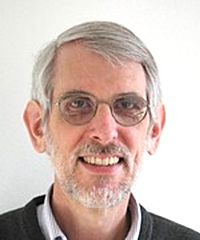Mitchell G. Weiss is a cultural psychiatrist, medical anthropologist, and health social science researcher. He trained in psychiatry at Harvard Medical School from 1981 to 1985 and then joined the Department of Social Medicine. He was awarded an NIMH Research Scientist Development Award from 1987 to 1992 and was mentored by Arthur Kleinman. After completing his residency in July 1985, he was an instructor in psychiatry and in social medicine. He became an assistant professor in June 1988. After joining the University of Toronto as an associate professor in 1992, he moved to Europe in 1995 to join the senior faculty of the Swiss Tropical and Public Health Institute (Swiss TPH, formerly Swiss Tropical Institute) with an appointment as professor at the University of Basel. He chaired the Swiss TPH Department of Public Health and Epidemiology for 12 years from 1997. Within the department, he established a health social science unit and a cultural epidemiology research group to integrate principles and methods of medical anthropology and epidemiology for global health research.
In the field of cultural psychiatry, Dr. Weiss has served on the boards of major U.S. and global professional organizations, including the Society for the Study of Psychiatry and Culture, the Transcultural Psychiatry Section of the World Psychiatric Association and the World Association for Cultural Psychiatry. He was a founding member of the steering committee of the International Consortium for Research and Action against Health-Related Stigma, established in 2004. He has served on various technical advisory groups of the WHO, including the Technical Advisory Group that guides the Global Leprosy Program, and the working group on oral cholera vaccines of the Global Task Force for Cholera Control. He was the first chair of the task force on community-directed treatment of onchocerciasis and lymphatic filariasis for the WHO Special Programme for Research and Training in Tropical Diseases. He also served on WHO’s Immunization and Vaccines-Related Implementation Research Advisory Committee (IVIR-AC).
At the Swiss TPH, he supervised 14 master’s students, 18 doctoral students and 7 postdoctoral postgraduates; he became professor emeritus in July 2015. In the HMS Department of Global Health and Social Medicine, he was a lecturer until 2016 and remains a corresponding member of the faculty.
Affiliations
- Professor Emeritus, Swiss Tropical and Public Health Institute, Basel; and the University of Basel, Switzerland
- Honorary Professor, King Edward Memorial Hospital Research Centre, Pune, India
In his research, Dr. Weiss has engaged partnership networks, primarily in India and in Ghana, Kenya and other countries of South Asia and sub-Saharan Africa. This work has contributed to various aspects of global health with cultural studies of mental health and infectious disease problems. It does so by examining cultural and structural determinants of help seeking and access to services in control programs for tuberculosis, leprosy, malaria, onchocerciasis and other neglected tropical diseases. He has developed an approach for integrating quantitative and qualitative methods for the practical study of stigma for use in both clinical assessment and public health research. He has also focused on vaccine acceptance and demand based on a stakeholder framework to support vaccination programmes for influenza, HPV and cholera. His current work involves testing a framework for clinical assessment that harmonizes convergent priorities of cultural psychiatry and social medicine.
Transcult Psychiatry
View full abstract on Pubmed
Pediatr Blood Cancer
View full abstract on Pubmed
Crisis
View full abstract on Pubmed
Int J Health Policy Manag
View full abstract on Pubmed
Br J Psychiatry
View full abstract on Pubmed
Taiwanese Journal of Psychiatry (Taipei)
Transcultural Psychiatry
Int J Public Health
View full abstract on Pubmed
Ch 13: Explanatory models in psychiatry
International Journal of Health Policy and Management
